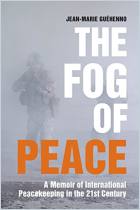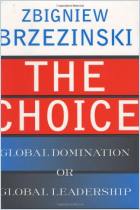Зарегистрируйтесь на getAbstract, чтобы получить доступ к этому краткому изложению.

Зарегистрируйтесь на getAbstract, чтобы получить доступ к этому краткому изложению.
Jean-Marie Guéhenno
The Fog of Peace
A Memoir of International Peacekeeping in the 21st Century
Brookings Institution Press, 2015
Что внутри?
Keeping the peace may be an impossible task – but it remains a worthy goal.
Recommendation
Amid the geopolitical chaos of recent years, a cynic might lose faith in institutions such as the United Nations Department of Peacekeeping. But Jean-Marie Guéhenno is no cynic. As he makes clear in this recounting of his eight years as head of the UN division charged with averting genocide – or at least providing some rudimentary medical care – Guéhenno remains optimistic about the worthwhile nature of peacekeeping interventions. But he’s also a realist. He acknowledges that costly missions in such locales as the Democratic Republic of Congo provided only fleeting relief, and he admits to black eyes such as the UN sex scandal in Congo. In one memorable passage, he recounts the words of a West African strongman: “It is so complicated to run an African state.” Guéhenno offers a similar lament about the challenges of operating as a UN peacekeeper, although he’s clearly on the side of good rather than evil. Guéhenno’s prose isn’t always easy to digest: He tends to dive right into the details of complicated conflicts without providing context for nonexpert readers. Still, this frank and useful text illustrates why the seemingly impossible task of keeping the peace is a responsibility the world can’t afford to ignore.
Summary
About the Author
Jean-Marie Guéhenno is the former under-secretary general for UN peacekeeping operations. He is head of the International Crisis Group and a foreign policy fellow at the Brookings Institution.
















Comment on this summary